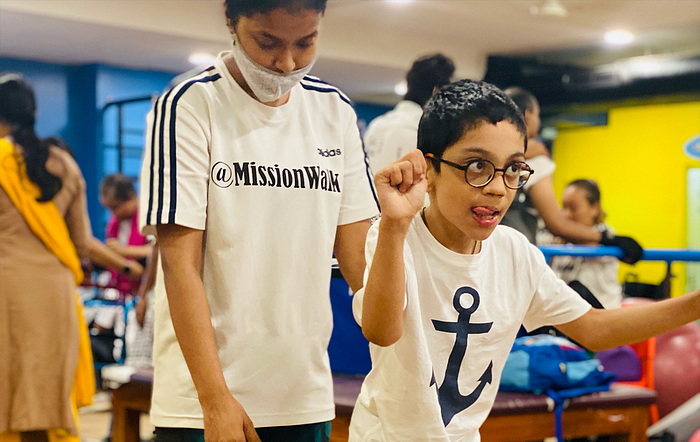Hearing Loss in Child: Types, Causes, Signs, Symptoms, Treatment | Missionwalk

If you suspect your child has hearing loss, you must seek help immediately. Your paediatrician is a good place to start, and you may be referred to a pediatric audiologist or an Ear, Nose & Throat doctor.
Hearing loss in children is a condition characterised by the child’s inability to detect sounds. It may range from mild to moderate to severe or severe hearing loss.
There are several causes of hearing loss in children, and they are as follows:
* Congenital causes
This means that hearing loss has been there since birth and can include hereditary hearing loss or hearing loss because of other factors, either prenatal or at birth.
* Acquired causes
This happens after birth, at any time during a child’s lifetime. This may be due to a disease, a condition, or an injury. Some examples of acquired causes of hearing loss are ototoxic drugs, meningitis, measles, chicken pox, influenza, mumps, head injury, and noise exposure.
* Otitis Media
This is an inflammation of the area behind the eardrum, which is associated with fluid build-up, regardless of whether the fluid is infected.
The presence of fluid causes loss of sound energy and inefficient transmission of the vibrations.
Your child may experience any of the three types of hearing loss:
* Sensorineural is the loss of functions in the inner ear connected to the brain.
* Conductive hearing loss is a problem in the outer or middle ear. The sound waves fail to send to the inner ear appropriately. Conductive hearing loss may develop after birth.
* Mixed hearing loss combines the first two types — sensorineural and conductive.
Screening babies born in hospitals for hearing loss is a responsibility of pediatric care, which should be done within the first month of birth.
Toddlers and older children should continue to be screened for hearing loss periodically, up to the age of 10, especially more often if you see signs of hearing loss.
These are the symptoms of hearing loss in children:
Newborns and infants usually respond to sounds before they can communicate through speech. If your baby has hearing loss, they
- do not get upset or startled by sudden and very loud noises,
- do not recognise their parent's voices at 3 months of age,
- do not turn their head towards a sound at 6 months of age,
- do not imitate simple words or sounds at 12 months of age.
In toddlers or older children, the symptoms include the following:
- delayed language skills
- abnormal speech
- listening to music and TV at high volume
- learning difficulties
- difficulty hearing over background noise
- not paying attention to conversations
- not responding when asked a question or when someone calls their name.
Treatment of hearing loss in a child
Medications and surgery can correct some hearing problems. The other issues are treated with hearing aids and speech therapy for kids. Hearing aids are battery-operated devices that can amplify sounds. They have tiny microphones that receive the sounds, then convert them into sound waves and then through electrical signals. Cochlear implants are the treatment through surgery.
This surgical method is not recommended for all hearing-impaired children, so consult your doctor or audiologist first.
Mission Walk Physiotherapy and Rehabilitation Centre in Hyderabad offer speech therapy to hearing loss children. We aim to help them learn to communicate as well as possible.
Our speech and language therapists will work directly with your child, family members, and other educational professionals to develop personalised techniques to support your child’s needs. Speech and language therapy will help your child learn to develop skills such as clarity, comprehension, fluency, voice, and sound production.
If you would like to learn more about us and our services, please do not hesitate to contact us today. We will be happy to hear from you.


Comments
Post a Comment